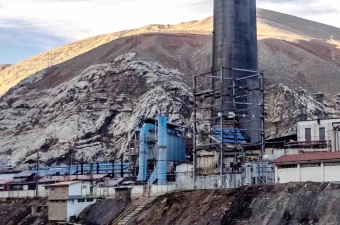Under the Free Trade Agreement between the European Union and the Andean countries the signatory countries established a series of commitments. However, there has been a major setback in the area of labour rights, said Maurice van Beers, regional coordinator for Latin America of CNV Internationaal, the international section of the Dutch Trade Union Confederation CNV, during the consultative meeting in Colombia last week:
Van Beers emphasises that civil society organisations play a fundamental role in these follow-up meetings for the FTA's labour chapter.
Attention was drawn to the cases of murdered union leaders and the worsening safety situation, which had already been highlighted in the past by human rights commissioner Michel Forst, the United Nations special rapporteur on the situation of human rights defenders.
One of the critical issues that came to light was impunity for the assassination of trade union leaders. In addition, it was highlighted that in spite of the number of deaths counted to date, security schemes and protection measures for threatened trade unionists were dismantled.

The agenda for Bogotá also included meetings where the Colombian government recognised that these dialogues do not have a rural focus. ‘They should, however; they should make an important impact on labour rights in the rural sector. The government acknowledged that informal labour is widespread in the rural sector,’ Van Beers said, referring to the breaches in labour rights that emerged during his visit to Colombia.
Future actions
It will be necessary to document in more detail the cases of non-compliance with the FTA's labour rights commitments for the coal and metals production chain, suffered by workers in Colombia and Peru.
‘What we are going to do through CNV is to support these workerss in putting into practice a strategy to bring these situations to light in a more detailed manner and present them to the European Union and the Dutch government,’ Van Beers pointed out, referring to the reports of poor working conditions and threats to the security of trade unionists in Colombia, and of excessive flexibility and outsourcing in Peru.

According to Julio Roberto Gómez Esguerra, president of the Colombian CGT union, it is necessary that the labour rights chapters of Free Trade and other commercial agreements be fully complied with,
‘The problem is that they often become dead letters. As instigated by these labour rights chapters, the rights of the working class must be developed and guaranteed.’ (Julio Roberto Gómez Esguerra, CGT de Colombia)
Giusseppe Iuliano, in charge of international relations at the Italian Confederation of Workers' Unions and member of the European Economic and Social Committee, believes it is necessary to re-examine the current situation in Colombia. ‘We could effectively request a new recommendation from the Agreement's authorities for the situation to be analysed. Let them make the necessary clarifications, because this situation cannot be accepted.’
The energy transition a new challenge for mine workers
In addition, there are some new challenges that will have to be addressed together with the business community, such as the energy transition: ‘We are already talking with coal buyers, with investors in the Netherlands, about cooperation to address this issue,’ Van Beers said. Finally, he drew attention to the urgency of creating a mechanism to settle complaints.
After this meeting, held annually to review the progress of compliance with the labour rights commitments of the Agreement, civil society representatives will have to meet more often to examine these issues, so that they can work from a single position agreed between the countries
Publication date 29 10 2019


